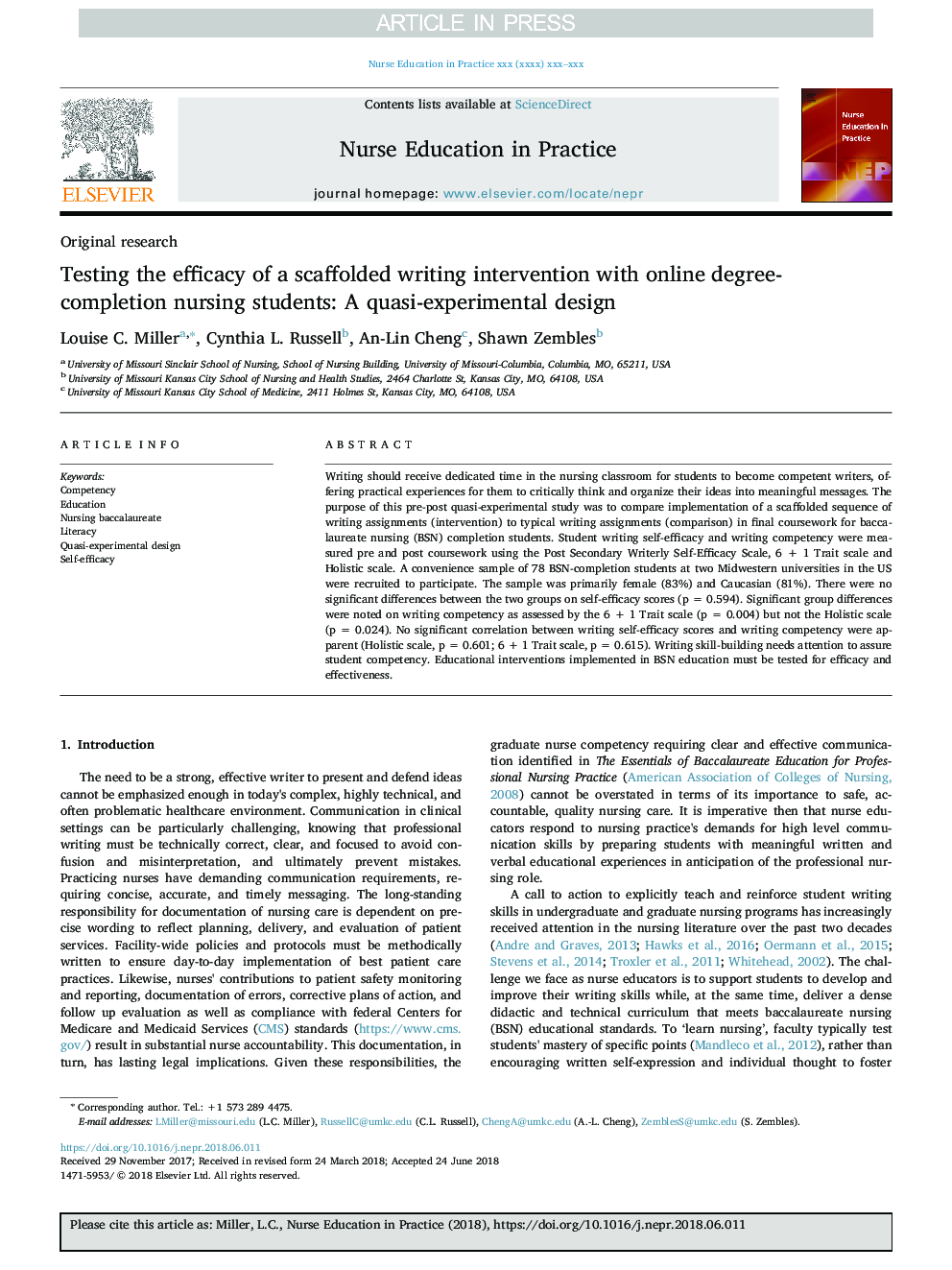| Article ID | Journal | Published Year | Pages | File Type |
|---|---|---|---|---|
| 11002184 | Nurse Education in Practice | 2018 | 7 Pages |
Abstract
Writing should receive dedicated time in the nursing classroom for students to become competent writers, offering practical experiences for them to critically think and organize their ideas into meaningful messages. The purpose of this pre-post quasi-experimental study was to compare implementation of a scaffolded sequence of writing assignments (intervention) to typical writing assignments (comparison) in final coursework for baccalaureate nursing (BSN) completion students. Student writing self-efficacy and writing competency were measured pre and post coursework using the Post Secondary Writerly Self-Efficacy Scale, 6 + 1 Trait scale and Holistic scale. A convenience sample of 78 BSN-completion students at two Midwestern universities in the US were recruited to participate. The sample was primarily female (83%) and Caucasian (81%). There were no significant differences between the two groups on self-efficacy scores (p = 0.594). Significant group differences were noted on writing competency as assessed by the 6 + 1 Trait scale (p = 0.004) but not the Holistic scale (p = 0.024). No significant correlation between writing self-efficacy scores and writing competency were apparent (Holistic scale, p = 0.601; 6 + 1 Trait scale, p = 0.615). Writing skill-building needs attention to assure student competency. Educational interventions implemented in BSN education must be tested for efficacy and effectiveness.
Related Topics
Health Sciences
Nursing and Health Professions
Nursing
Authors
Louise C. Miller, Cynthia L. Russell, An-Lin Cheng, Shawn Zembles,
